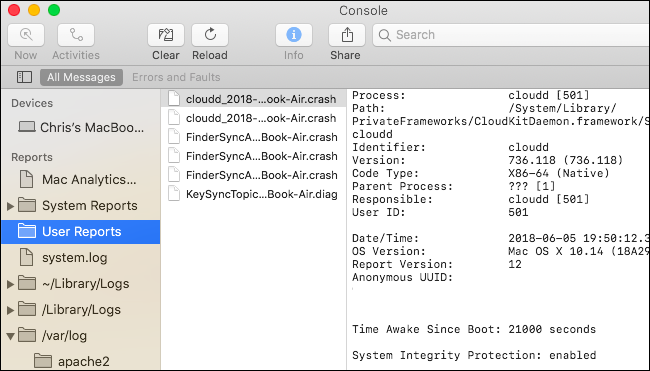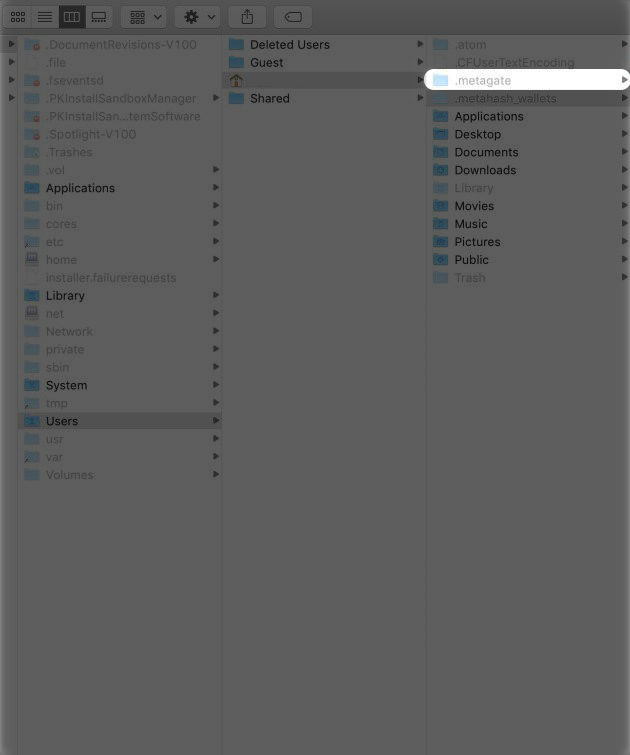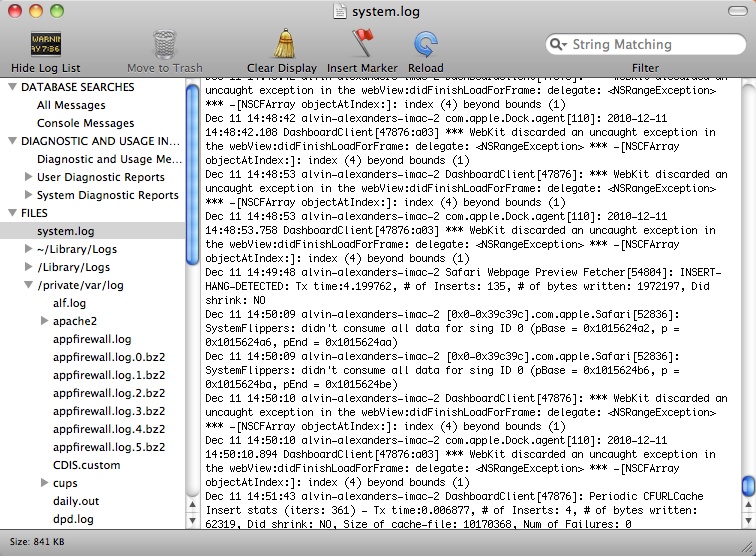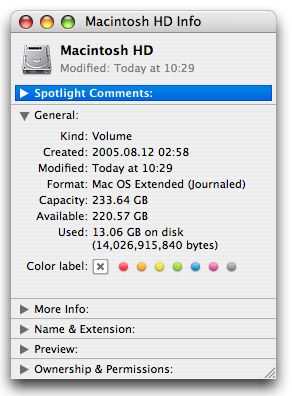
Each of which will place your data dir and/or logs in different locations. If just want a history of what you typed, use the built in history functionality of bash.As Chealion mentioned, there are several ways that your mysql could have been installed. Note that the script command records control characters like backspaces, and capturing a vi session is a bit messy.


#Mac os x log files how to
If you don't use (the default) bash shell, you'll have to look up how to do things in your chosen shell. This doesn't record, as 'script' does, the output of commands, but it does much of what is useful (I use the script command in more limited circumstances). This is just my preference.Įverytime there is a new prompt, the history is appended, cleared, read (back) in so history from all windows is available and displays correctly in all windows.įinally, a command to search the history (e.g. Ignores repeated and uninteresting commands, also allows you to keep a command out of history by starting it with a space or a tab.ĭisplays multiple commands entered on a single line on a single line (think: for loop). Records and displays the date and time of a command. Keeps a large history file (which I like, this may be a bit much, though). If you have a lot of terminal sessions or keep them open for weeks/months you may want to up this value. Sets the history kept for a current iteration of the shell to larger than the default of 500. bash_profile:Įxport PROMPT_COMMAND="history -a history -c history -r $PROMPT_COMMAND" Here are some things related to history in my. I don't bother to enter dates - which I could do easily enough with a TypeIt4Me shortcut - but if I'm looking for something I'll generally know what text to search for.]Īctually you can save your history from multiple windows to a single. If I ever need to go back to these files to look for something I can do so.
#Mac os x log files archive
I archive these files at the end of the year, and create new ones.

#Mac os x log files for mac os x
For example, I have one file for most of what I write, another just for Mac OS X Hints, and another for a specific client I write for. I do most of my writing in BBEdit, and I have a number of "scratch" files which I change every year. I don't use Terminal a lot, but I find that I sometimes need to remember a command I ran in the past which is no longer in my history.Īlso, this is similar to something I do with texts I write. I then set Terminal.app to run at startup the following command: ~/Desktop/logger.shHere's the script: #!/bin/bash# logger.sh# Log everything you do in Terminal.#* Formatted date & time string.FORMATTED_DATE=`/bin/date "+%Y-%m-%d%H%M%S"`#* Archive the previous file/bin/cp -f ~/Desktop/Terminal.log#* Begin a new one/usr/bin/script ~/Desktop/Terminal.log[ kirkmc adds: This is a good idea. I like to keep my history so instead I wrote this small script that archives previous sessions by renaming the file with a date/time string. You could create a simple log of your session using the following: /usr/bin/script ~/Desktop/Terminal.logThis will log everything you do and append it to the log file.

You can choose here to run a command at startup. It makes it much easier to undo your mistakes when you know what those mistakes were. I use Terminal everyday, and I find it a good idea to log everything I you.


 0 kommentar(er)
0 kommentar(er)
